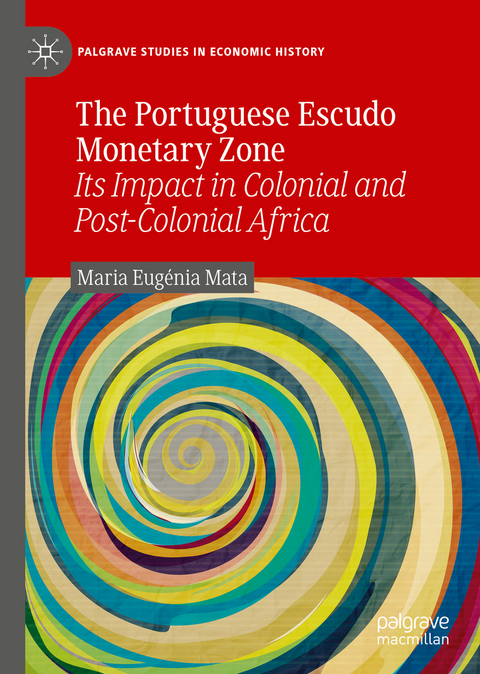
The Portuguese Escudo Monetary Zone
Springer International Publishing (Verlag)
978-3-030-33856-5 (ISBN)
This book offers some important lessons regarding the functioning and dismantling of monetary areas, and on the importance of central-banks' co-operation.
Maria Eugenia Mata is Associate Professor at the Faculty of Economics at Nova University Lisbon, Portugal. Her research interests include Economic, Business and Financial History, and the History of Economic Thought. Mata is an Ex-President of the Portuguese Economic and Social History Association.
Chapter 1: Introduction: Why to Study "The Portuguese Escudo Monetary Zone and its Impact in Colonial and Post-Colonial Africa".- Part I. The Origin of the Escudo Monetary Zone.- Chapter 2: The Escudo Monetary Zone.- Chapter 3: The Difficulties in launching the Escudo Monetary Zone.- Chapter 4: War, Confidence, and Expectations. Adjusting the Rules of the Escudo Monetary Zone.- Part II. The Transition to a Revised Escudo Monetary Zone.- Chapter 5: The Heritage from the 1963-1968 Period. Marcelo Caetano and the Decision of Asking for Studies.- Chapter 6: The Technical and Political Discussion of the Escudo Zone Problems, and the Reform of 1971.- Chapter 7: The results of the 1971 Reform of Escudo Monetary Zone Union. The Angolan and Moçambican Divergence.- Part III. The End of the Revised Escudo Monetary System.- Chapter 8: Decolonisation and Independence Agreements. Retornados and difficulties of the Banking System.- Chapter 9: The Genesis of theNew Currency Units and Banking Systems in the Portuguese-Speaking African Countries. The Co-operation with Portugal.- Chapter 10: The End of the Escudo Zone Monetary Fund in 1980. The continuation of co-operation.- Part IV. Co-operation from Independences to the End of the Millenium.- Chapter 11: The New Currencies in the West-African Portuguese-Speaking
Countries and the Portuguese Co-operation.- Chapter 12: The Angolan Kwanza and the Portuguese Co-operation.- Chapter 13: The Mozambican Metical and the Portuguese Co-operation.- Chapter 14: Final Remarks: Conclusions.
| Erscheinungsdatum | 15.06.2020 |
|---|---|
| Reihe/Serie | Palgrave Studies in Economic History |
| Zusatzinfo | XX, 265 p. 20 illus., 17 illus. in color. |
| Verlagsort | Cham |
| Sprache | englisch |
| Maße | 148 x 210 mm |
| Gewicht | 503 g |
| Themenwelt | Geschichte ► Teilgebiete der Geschichte ► Wirtschaftsgeschichte |
| Wirtschaft ► Allgemeines / Lexika | |
| Wirtschaft ► Betriebswirtschaft / Management ► Finanzierung | |
| Wirtschaft ► Volkswirtschaftslehre | |
| Schlagworte | Central banking history • Colonial African economic history • Economic History • Monetary Reform • Portuguese colonies • Portuguese economic history • Portuguese Escudo Monetary Zone • Post-colonial African economic history |
| ISBN-10 | 3-030-33856-8 / 3030338568 |
| ISBN-13 | 978-3-030-33856-5 / 9783030338565 |
| Zustand | Neuware |
| Informationen gemäß Produktsicherheitsverordnung (GPSR) | |
| Haben Sie eine Frage zum Produkt? |
aus dem Bereich


